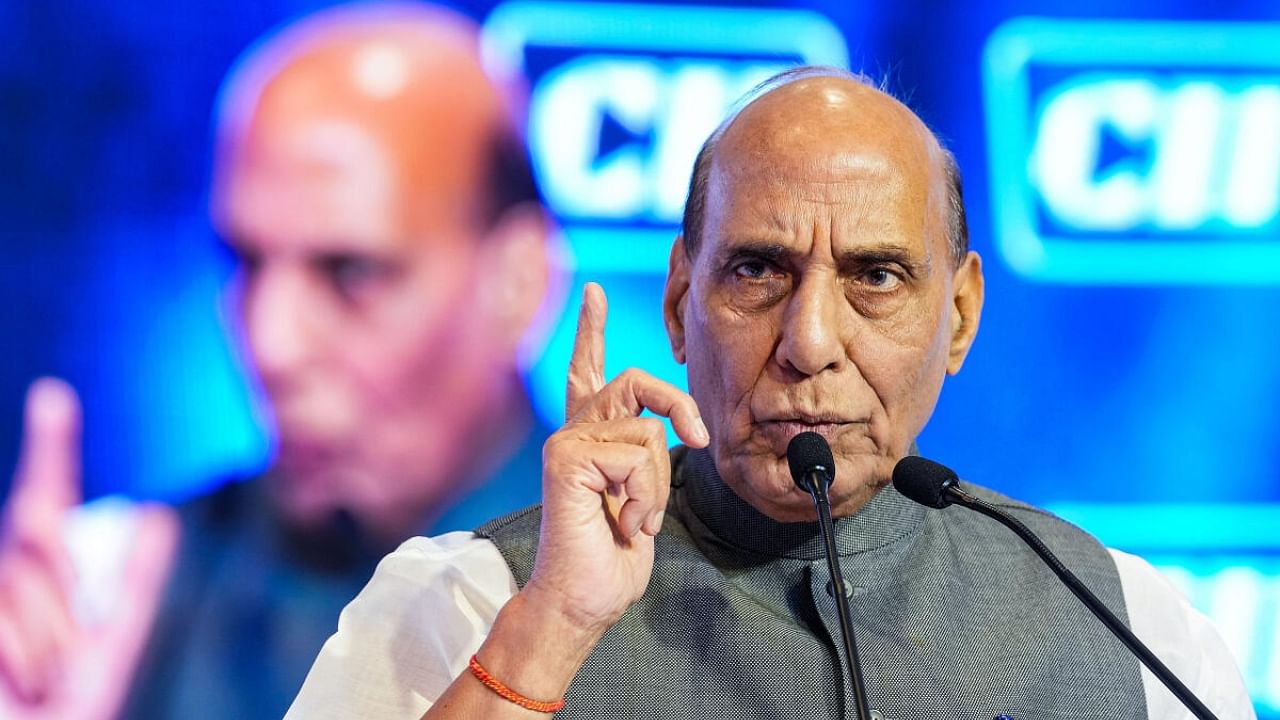
Defence Minister Rajnath Singh on Thursday mooted the idea of the cross-movement of scientists between DRDO and other institutions as an option to enhance the links between the two research establishments leading to the development of new technologies.
Addressing a conclave here, Singh asked scientists from both sides to explore the possibility of deploying Defence Research and Development Organisation researchers as faculty in academic institutions while allowing scientists from other institutions to serve on deputation in DRDO.
Elaborating on the benefits of the DRDO–academia partnership, he said a synergy will help the defence research body get skilled human resources from institutions like the Indian Institute of Science, IITs, NITs and universities. The academia, on the other hand, will benefit from the R&D fund of DRDO that it spends on developing new technologies.
Also, scientists from non-DRDO institutions will get access to the infrastructure and advanced laboratory facilities in the defence research organisation. “Such a symbiotic relationship will be helpful in further enhancing the start-up culture in our country,” Singh said.
The Union government last year announced that the defence R&D will be opened up for industry, start-ups and academia with 25% of the defence R&D budget earmarked for such joint projects.
“Unless we do research, we will not be able to adopt new technologies. R&D has the ability to convert ordinary substances into valuable resources. It has been a key factor in the development of civilisations throughout history,” Singh added.
Addressing another conference largely attended by industry leaders, Singh asked the industry to become a ‘leader’ from an ‘imitator’ in futuristic technologies.
“Security equations are changing at an unprecedented pace and countries are focusing more than ever on technological advancements in the fields of artificial intelligence, quantum computing & genetics, etc. This is an opportunity to make a mark with the aim to help the nation leapfrog on the path of progress,” he said at the CII annual session.
